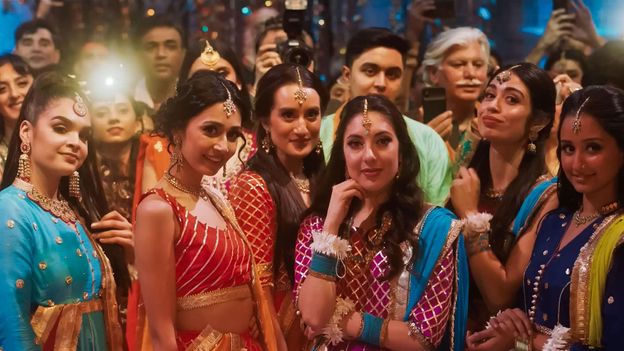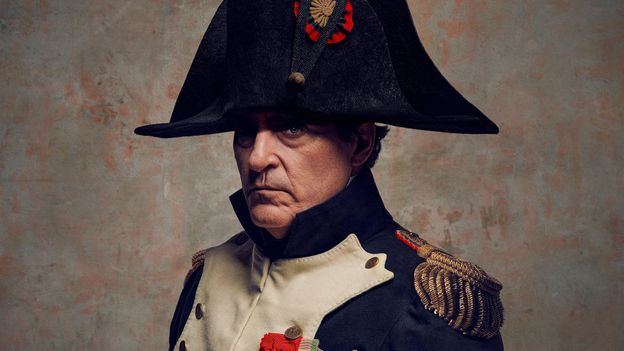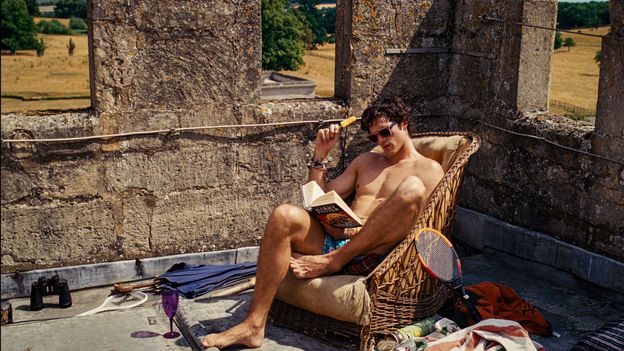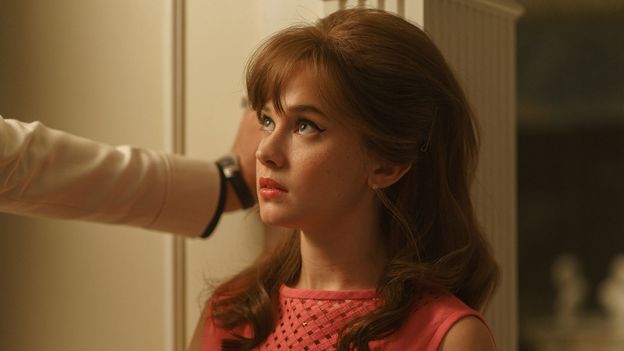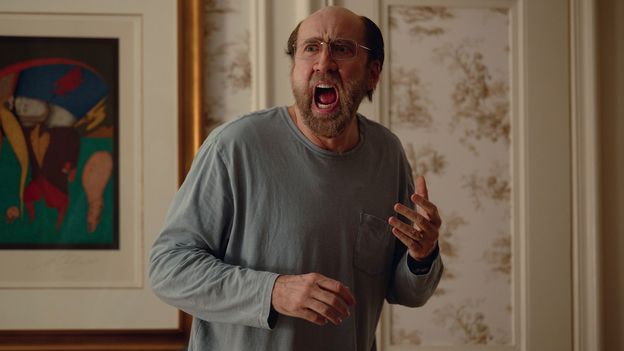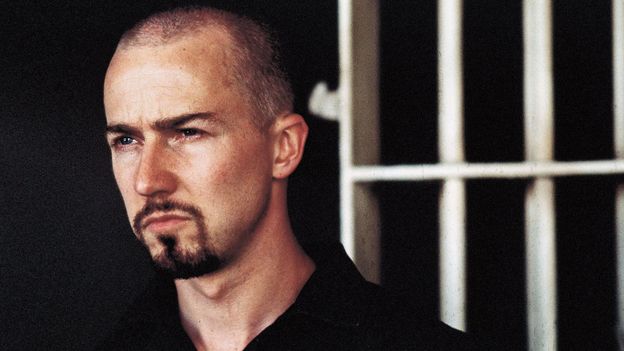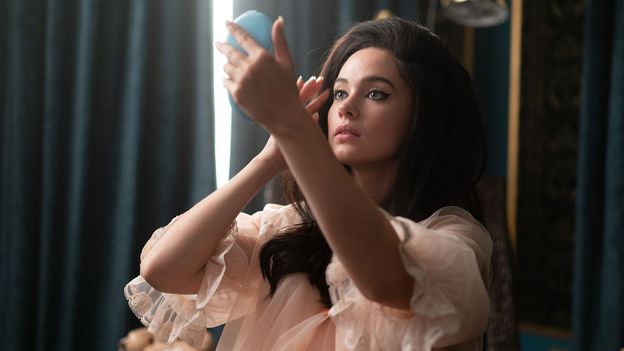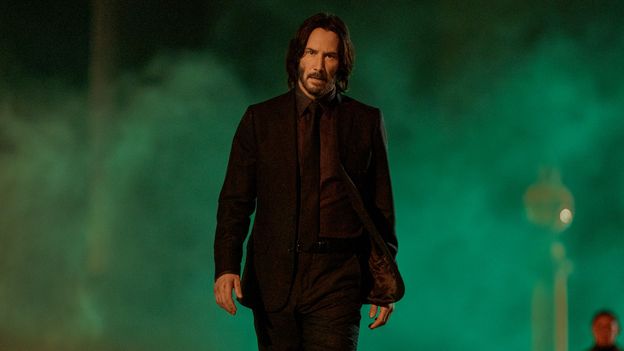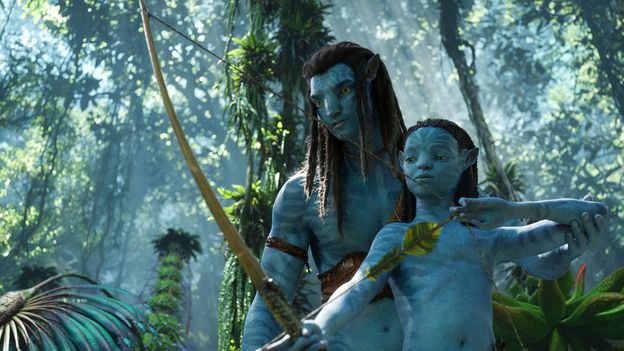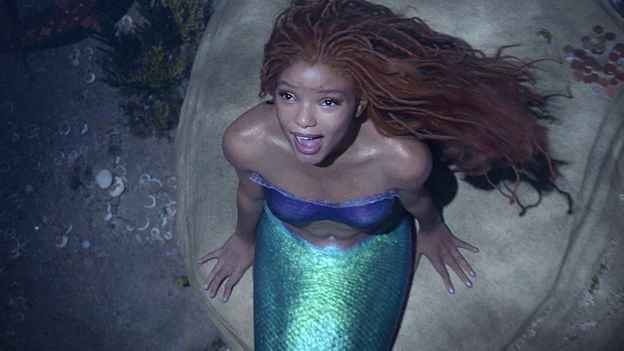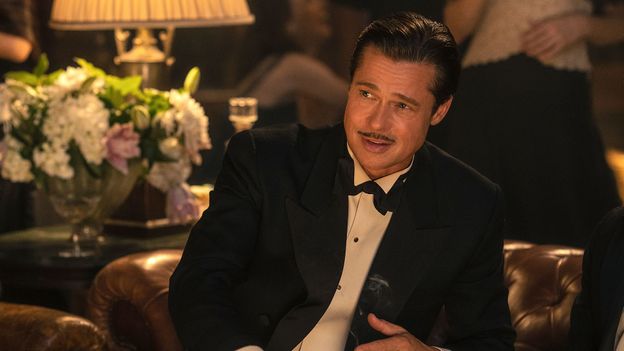“One of the greatest concepts I learnt from my time in Pakistan is the concept of Neeyat – of intention or things being judged on intention,” says Khan. “I think most people that know me, especially those from Pakistan, know that my intentions are good and that I have an enormous affection for the country.”
There is a self-aware joke in the film when Zoe’s documentary gets cancelled because, in the words of her producers, “diverse subject, white lens”. However, in the case of What’s Love Got To Do With It?, while it is written by Khan, the person behind the lens is respected filmmaker Shekhar Kapur, who was born in Lahore, where the Pakistan scenes are set. Known for his lavish period dramas Elizabeth and its sequel, both starring Cate Blanchett, this is his first contemporary film set in the West. But it is the Lahore scenes that stand out: it is definitely one of the most beautiful portrayals of the city I’ve seen on the big screen, with rich, glossy and vibrant colours. The wedding scenes have dreamy aesthetics and fantastic dance sequences. Rom-coms aren’t often this visually stunning.
Kapur was “mindful about keeping it real,” he tells BBC Culture – as evidenced visually by the lack of clichéd, exoticising filters. “Obviously, every film has its own colour palette. But use a yellow filter? I’ve never done that. This is a film about real human beings. Any kind of yellow colour here, and suddenly that’s saying we’re in this distant land that we don’t understand. That’s not true. The people are the same… with the same ideas, the same ambitions, the same problems, the same inefficiencies. And so, for me to use a filter for Lahore would be like saying we’re talking about alien people. This isn’t a film about aliens. This is a film about people.”
So, in the end, what does love have to do with arranged marriages? According to Dr Tahir, if you only look at it from the perspective of romantic love, perhaps not much at first. But there is more than one kind of love. “My argument is that in an arranged marriage there are four types of love. One is the love the parent has for their child, then the love between friends, the love between siblings and the sensual love between individuals – which all come together in the course of the marriage.” These are all themes that the film explores.
By the same token, “the rom-com mythologised version of love… this idea that it can cure you and fix you and answer all your problems is quite problematic,” says Khan, “because it means our expectations are wildly unrealistic. And that’s a new thing. Love didn’t use to mean that.”
To the surprise of no one, Kaz and Zoe do wind up together – but only after Maymouna makes clear she is in love with someone else. Khan says it was important that it was Sajal’s character that rejects Shazad’s and not the other way around in order to counteract the problematic portrayals of brown women as somehow less desirable.
The search for love can often be a struggle, and there isn’t any guarantee of success no matter what route one opts to take. What’s Love Got to Do with It? doesn’t weigh in one way or the other about which version of marriage is better. All it asks is that audiences leave their preconceived notions at the door.
What’s Love Got To Do With It? is released in UK cinemas on 24 February and will be released in the US at a later date.
Love film and TV? Join BBC Culture Film and TV Club on Facebook, a community for cinephiles all over the world.
If you would like to comment on this story or anything else you have seen on BBC Culture, head over to our Facebook page or message us on Twitter.
And if you liked this story, sign up for the weekly bbc.com features newsletter, called The Essential List. A handpicked selection of stories from BBC Future, Culture, Worklife and Travel, delivered to your inbox every Friday.

